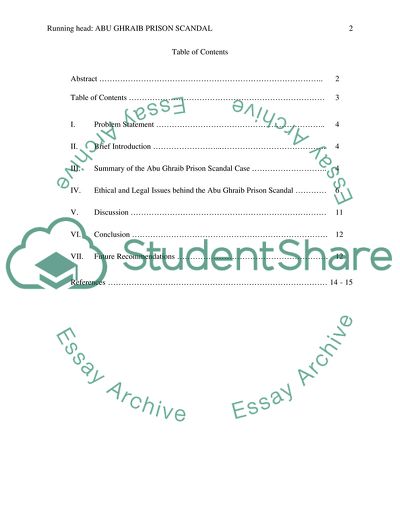Cite this document
(Abu Ghraib Prison Scandal Term Paper Example | Topics and Well Written Essays - 1500 words, n.d.)
Abu Ghraib Prison Scandal Term Paper Example | Topics and Well Written Essays - 1500 words. https://studentshare.org/social-science/1739992-prison-scandal
Abu Ghraib Prison Scandal Term Paper Example | Topics and Well Written Essays - 1500 words. https://studentshare.org/social-science/1739992-prison-scandal
(Abu Ghraib Prison Scandal Term Paper Example | Topics and Well Written Essays - 1500 Words)
Abu Ghraib Prison Scandal Term Paper Example | Topics and Well Written Essays - 1500 Words. https://studentshare.org/social-science/1739992-prison-scandal.
Abu Ghraib Prison Scandal Term Paper Example | Topics and Well Written Essays - 1500 Words. https://studentshare.org/social-science/1739992-prison-scandal.
“Abu Ghraib Prison Scandal Term Paper Example | Topics and Well Written Essays - 1500 Words”. https://studentshare.org/social-science/1739992-prison-scandal.


